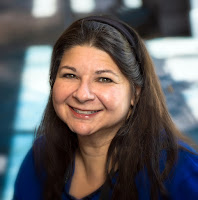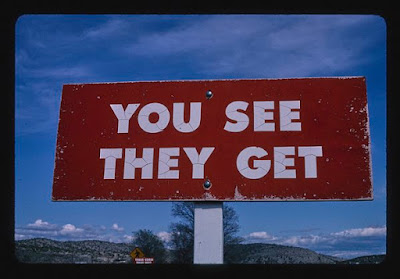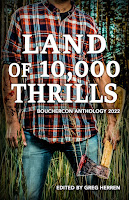Dutch author Anne van Doorn has previously written for SleuthSayers. Today, in the wake of the Dutch publication of the novel he's deemed his "American Project," I'm delighted to welcome him back so he can tell you about this project and possibly provide a blueprint for those who'd like to attempt something similar.
— Barb Goffman
My American Project – The Procedure
by Anne van Doorn
In two previous articles on
SleuthSayers, I talked about my intention to write an American mystery novel
set in New York City. Since my last post, I’ve done exactly that. Some of you
may have heard of The Delft Blue Mystery, the Dutch translation of which was
released at the end of May. The first copy was presented to Josh Pachter, to
whom I dedicated the book. Since I’m still looking for a literary agent—and
subsequently a publisher—the English version has yet to come out.
I dedicated the novel to Josh for
various reasons. Basically, The Delft Blue Mystery would never have been
written if he hadn’t encouraged me.
Josh contacted me in the summer
of 2017 and said he’d heard I had written a short story that could be of
interest to Ellery Queen’s Mystery Magazine. This initial contact led to the publication
of “The Poet Who Locked Himself In” in the September/October 2019 issue of
EQMM. Through our correspondence, I have come to know Josh as a true
professional. He knows a lot about getting short fiction published in
magazines. He told me that my English is probably good enough to translate my
stories myself and get them published. He also gave me sound advice to achieve
that goal. With that encouragement, I succeeded. EQMM published “The Doctor Who
Fell Into Sin” last year. Once I made that sale, I wanted to try my hand at a
novel too—and why not write it in English from scratch?
This article is not intended to
BSP my novel or my published short stories, but to highlight the procedure I
used, which may be relevant to other non-American speakers considering writing
an American (mystery) novel. My method could be a blueprint, or at least
inspire others on how to go about it.
First two stages
I’m a plotter, and I write
plot-driven novels. On my computer, I have a file titled “What to do” that guides
me step-by-step through creating a plot and plot structure (stage 1), writing
the story (stage 2), and editing it (stage 3). In this post, I will not go into
detail about the creation of the plot, but I would like to show you where the
procedure for The Delft Blue Mystery differs from what I normally do when I
write in my own language—Dutch.
Concerning stage 1, the normal
routine didn’t change much, but I read many books by American authors and wrote
down words I needed to express my story. I know many English words, but in
specific situations, my knowledge falls short. For example, what jargon does a
Medical Examiner use? What does slang look like on the page? In my first post on SleuthSayers, I talked about creating a palette file. I used it during the
first stage to determine how each character expresses themselves non-verbally.
Stage 2 was easy: write the book!
As a plotter, I work with a detailed outline that shows how many scenes there
will be, where each scene takes place, which characters are involved, and how
the plot should develop. This detailed outline was vetted by a fellow Dutch
author, Paul Dieudonné—my soundboard for this novel. I used his feedback to
improve the outline.
Writing according to an outline
is a routine matter. What differs from the usual procedure is that I utilized
my palette file, which helped me decide which words to use. Does a character
walk, stride, tiptoe, or move in another way? How does he put something
down—gently or slamming it down? What forms of non-verbal communication might I
use? The palette file turned out to be a very useful tool.
Third stage – The editing, part I
Most of the additional steps can
be found in the third stage. After writing the first draft, I took several
steps to improve the manuscript. Most of them I apply to each book: I analyzed
and improved plot structure, characterization, and setting. But now on to the
additions to my step-by-step guide.
Since I was taught British
English at school, I created a file explaining the differences. I used it to
weed out British spelling and words with (slightly) different meanings. As I
write about the New York City Police Department (NYPD), I have a file of
information on how the NYPD operates, and I’ve used it to enhance the story. I
collected English words I didn’t know and wrote down their meanings, an example
sentence, and synonyms in a file, and then consulted that file to change words
in my manuscript where and when needed.
As a daily visitor to
SleuthSayers, I have saved some articles on my computer. Leigh Lundin wrote an
excellent piece on deadwords. I used the post to weed out overused words. John M. Floyd drew our attention to a similar topic: redundancies. He also wrote the
article “Where's A Grammar Cop When You Need One?” Another valuable weed
killer!
I know myself. I know I tend to
repeat mistakes. Barb Goffman edited “The Doctor Who Fell Into Sin” and two
other short stories I translated from Dutch. I collected the kind of errors I
might repeat in a file titled “Edits by Barb Goffman.” I went over all my notes
in that document to find similar mistakes I made in The Delft Blue Mystery. By
the way, Josh Pachter introduced me to Barb, so he facilitated Barb’s
involvement too!
Third stage – The editing, part II
Once I was confident I had done
all I could, I would normally have sent the manuscript to my publisher. But not
now. I added several steps to the procedure.
Josh Pachter told me one day that
he uses Google Translate to translate stories from Chinese, Spanish, and other
languages, into English. A splendid idea. I used the tool to translate my
English manuscript into Dutch. It only took an hour or so. That translation
wasn’t too bad. Eighty percent of the sentences turned out to be fine. But I
had to edit the other twenty. And the punctuation was off. I created a file
with common Google Translate errors for future use. That will make it easier
next time.
I finished the Dutch version and
sent it to publisher Hans van den Boom. Based on his feedback, I made some
changes to the plot of both versions. Then I ran the Dutch text through Google
Translate, from Dutch into English, and I used that new version to improve my
own English draft. Most of the changes concerned word choice and the sequence
of words. Then I ran that improved English text through the free version of
Grammarly. That tool helped me improve punctuation—especially comma use—and change
wordy sentences.
Third stage – The editing, part III
I’m not an American, and I have
never worked for any of the police departments in the USA. While I’ve carefully
researched the NYPD (for example, their radio communication procedures; I have
two files about this subject on my computer), I can make mistakes. I take
certain liberties to create a readable and suspenseful story, but it shouldn’t
deviate too far from reality. Therefore, I needed a beta reader who is—or had
been—a policeman.
 |
| Tom Mead |
As far as I can remember, it was
(again) Josh Pachter who introduced me to David Dean, a retired police chief,
who served with a police department in New Jersey. He’s also a very
accomplished short-story writer. I was much impressed by his “The Duelist,” and
consider it one of the three best stories I’ve read in EQMM since I subscribed
in 2019. I think he’s a far better author than I am.
When I approached him, David was
most kind. He was keen on reading my manuscript (which still hadn’t been
professionally edited), which he then did, giving me useful feedback. I made a
couple of necessary changes to both versions.
British author Tom Mead, writer
of Death and the Conjuror—a mystery novel I thoroughly enjoyed—was my second
beta reader. I write whodunits and sometimes dabble in locked-room mysteries,
which The Delft Blue Mystery is. I needed a beta reader to assess that aspect
of my manuscript: the fine-tuning of the plot, the clues, the red herrings, and
the final revelation. Tom gave me some ideas to improve the plot.
Third stage – The editing, part IV
At last, I had the story ready
for my editor, the aforementioned Barb Goffman. Does she need an introduction?
Not only is Barb a professional developmental, copy, and line editor, but she’s
also an award-winning short fiction author. She won so many awards and received
so many nominations, I should probably go back to school and learn how to count
again. What can I say about what she did with The Delft Blue Mystery? Well, a
lot had to be done! So much so, that I’m still amazed that David Dean and Tom
Mead were willing to read an early, unedited version. It can’t have been easy
for them.
Naturally, I’ve updated my “Edits by Barb Goffman” file for future use.
 |
Josh Pachter
|
Do you think the manuscript was
finished now? Almost. Barb’s edits also impacted the Dutch version. Hans van
den Boom and his wife, Erna Teunissen, did a final round of corrections of Het
Delfts blauw mysterie, as the novel is titled in Dutch. Some of their
corrections necessitated changes to the English version as well.
Thus The Delft Blue Mystery is
completed (for now). Much of this was made possible by Josh Pachter. Hence my
decision to dedicate the novel to him—to express my gratitude and admiration
for what he did. The first copy of the Dutch version was handed to Josh by his
wife, Laurie Stahl Pachter, whom I had asked for assistance. The photos she
took of the memorable event commemorate this high point in my career. I feel
very fortunate to have worked with him and with so many other talented people.
Thank you all!

.jpg)































